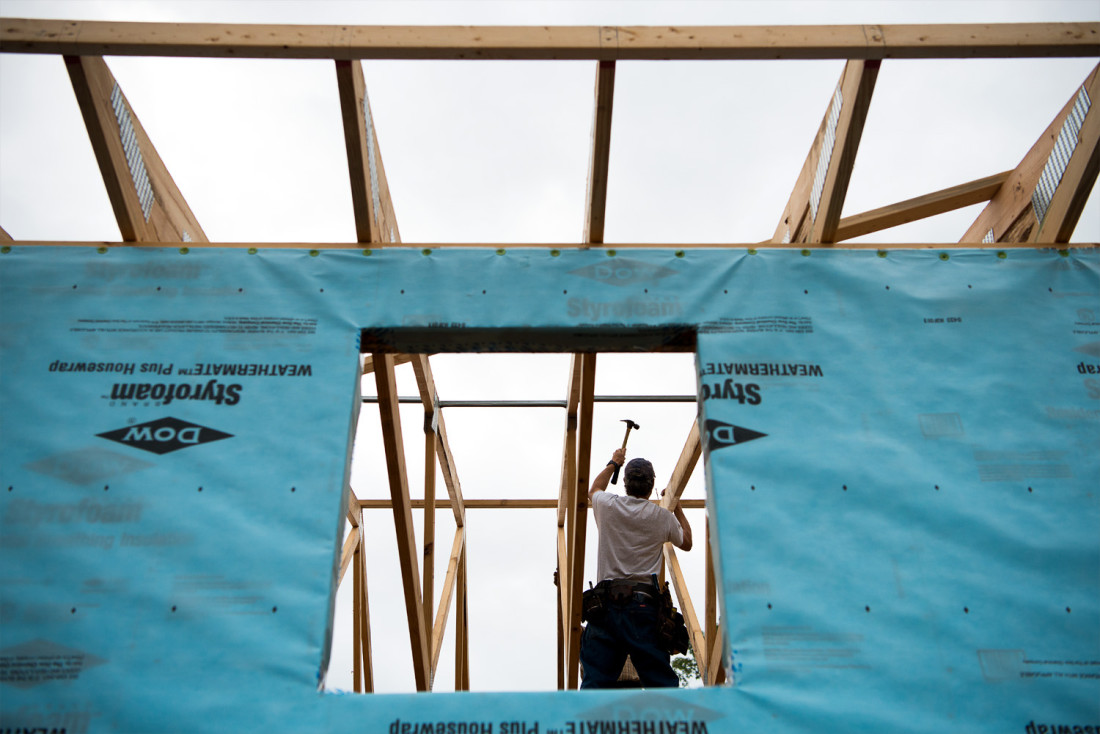Hammers, nails and local craft beer are coming together in a project by the Asheville Brewers Alliance and the Asheville Area Habitat for Humanity team.
The House That Beer Built is now under construction at Habitat’s Arden location. The ABA, an Asheville-based nonprofit that represents area breweries and beer-related businesses, has given Habitat a $10,000 gift toward construction of the two-bedroom, one-bath home, says Alliance Executive Director Kendra Penland. Beyond that donation, brewery employees will also help with the house’s construction.
“In our community, we recognize how challenging it can be [to find affordable housing],” Penland says. “We wanted to bring some awareness to the good work Habitat does.”
Hi-Wire Brewing hosts a public kickoff party to celebrate the collaboration Monday, Nov. 13, at 5:30 p.m. at its Big Top production location. One dollar from every pint of Hi-Wire’s Lion Tamer Rye IPA and Blonde Ale sold that night will go to the project. In exchange for a donation, the public can also sign a stud wall that will be used in the house. Additional donations can be made by texting 91999 with the keyword “beer.”
The House That Beer Built isn’t the first time the local brewing industry has contributed to Habitat. According to Habitat development officer Beth Russo, several breweries were involved in helping build a Habitat house in 2012. And in addition to being part of the current ABA project, Wicked Weed Brewing is sponsoring a second Habitat house.
Russo says similar Habitat collaborations have occurred around the country in “areas where there is a lot of beer production” and describes the ABA’s contribution as a “‘very significant gift.” She adds that the cost of a Habitat home is around $145,000, but the organization raises funds from other sources. Habitat homeowners also make monthly mortgage payments.
The house won’t be finished until May, but Habitat has already lined up its occupants — single mom Karen Chrisman and her young son, both of whom will be at the Hi-Wire event. Chrisman is described on the Habitat website as having been laid off from a factory job, yet “turned that misfortune into opportunity” by returning to school and starting a career in early childhood education. Russo says Habitat homeowners are carefully screened and must contribute time and labor to the organization in addition to paying the mortgage.




Before you comment
The comments section is here to provide a platform for civil dialogue on the issues we face together as a local community. Xpress is committed to offering this platform for all voices, but when the tone of the discussion gets nasty or strays off topic, we believe many people choose not to participate. Xpress editors are determined to moderate comments to ensure a constructive interchange is maintained. All comments judged not to be in keeping with the spirit of civil discourse will be removed and repeat violators will be banned. See here for our terms of service. Thank you for being part of this effort to promote respectful discussion.